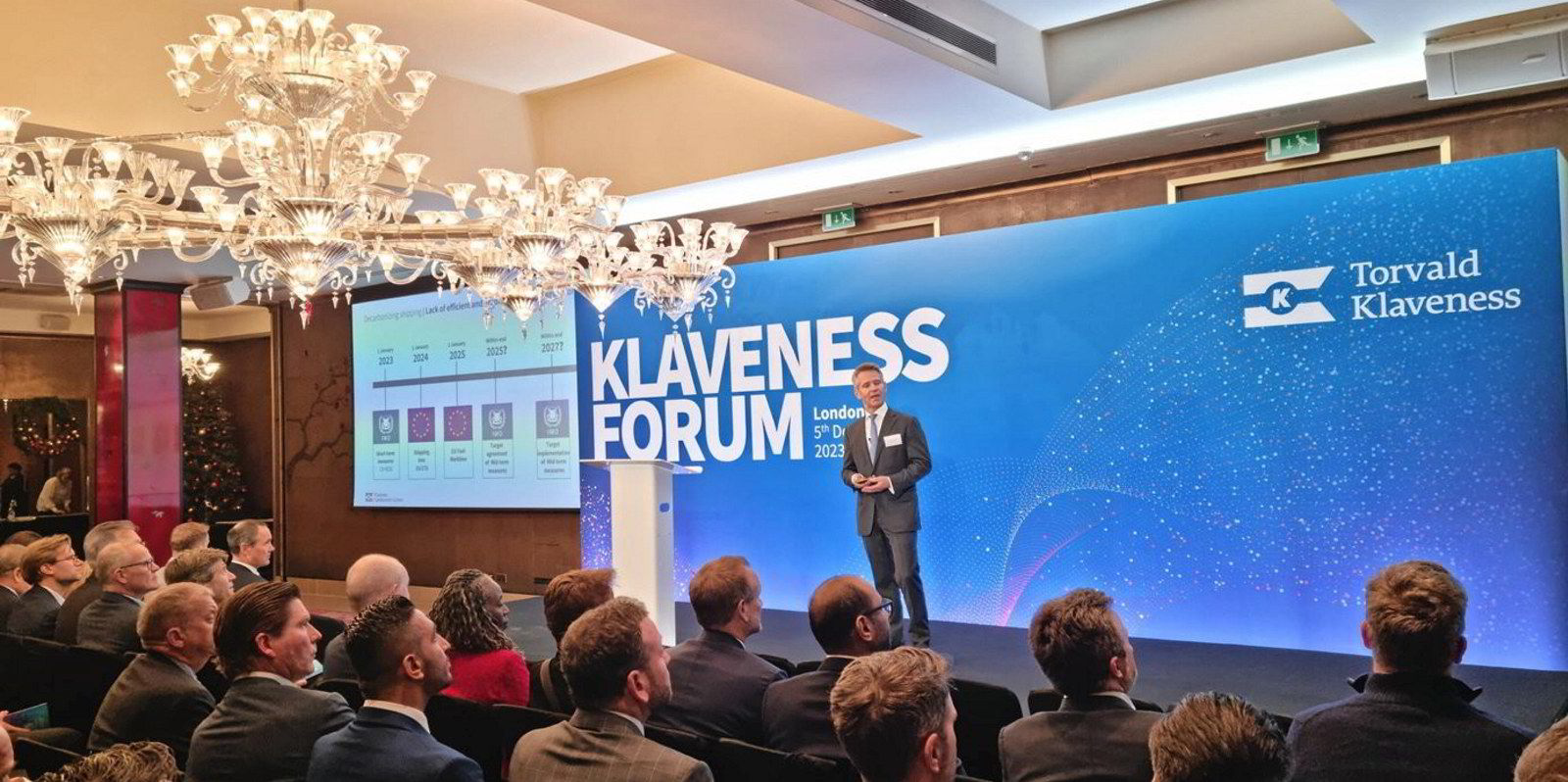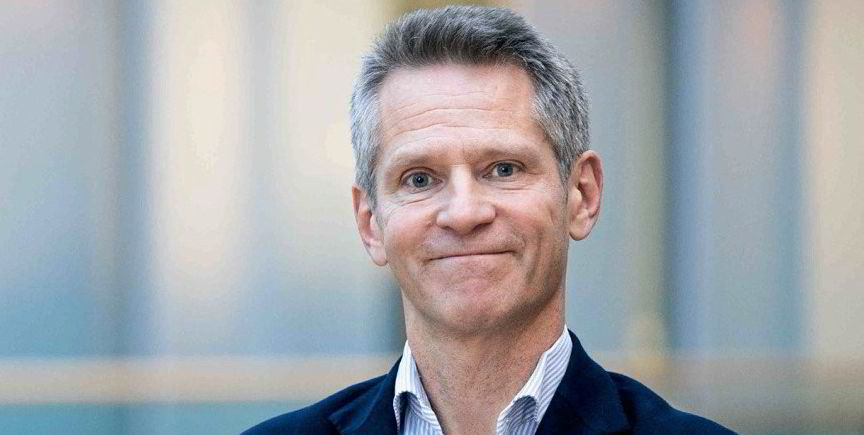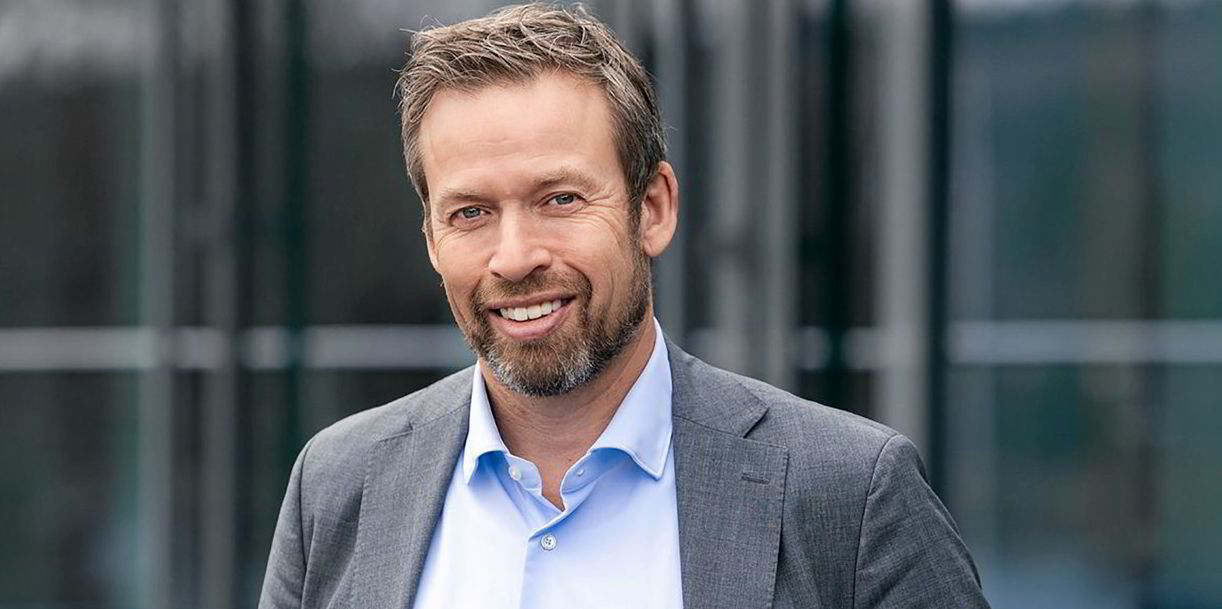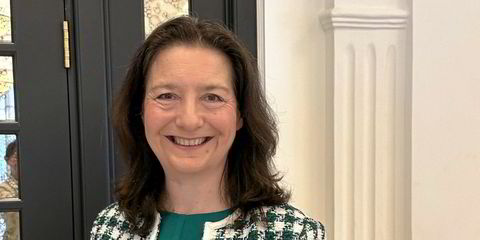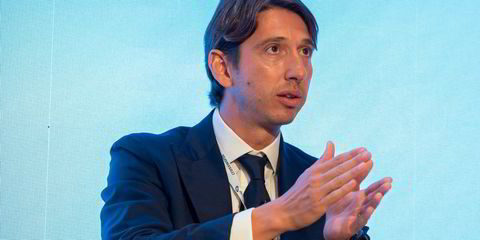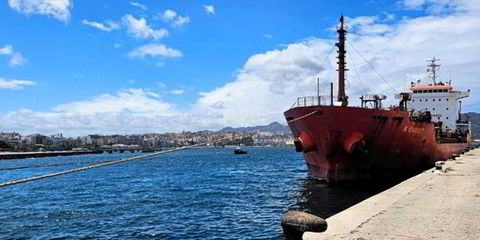Shipping companies struggling to stay profitable are no good to anyone in the battle to clean up the industry, according to Engebret Dahm.
The Klaveness Combination Carriers (KCC) chief executive told guests at the annual Klaveness Forum in London that nobody knows how to future-proof shipping.
But efficiency and profit must go hand in hand if decarbonisation targets are to be met.
“We are firm believers that the scientific knowledge is there, that decarbonisation is there as a fact. It’s really a core part of what we do in KCC,” he said.
“Clearly a sustainable strategy for decarbonisation has to reward profit. A loss-making decarbonisation is not sustainable. A bankrupt shipowner is not sustainable. So that means that profitable decarbonisation starts with efficiency.”
Dahm said KCC is looking at any option to improve its own efficiency.
It already has an advantage in that its wet and dry trading ships have a 30% lower carbon footprint than tanker and bulker competitors, due to the elimination of many ballast legs.
“But how are we as shipowners going to have a strategy of implementing the decarbonisation fuels? They are three to four times more expensive than today’s fuels,” he said.
Planning has to start now, Dahm told delegates, to prepare for the use of these zero-carbon bunkers when they are ready and available.
“It’s all about creating optionality. And that’s extremely important,” he said.
“The next step is of course trying to work with customers, trying to work with regulators.”
Cooperation is vital
And in the absence of international regulations, the cooperation between charters and shipowners is so important, he said.
“There’s so much waste in the shipping industry today, with standard ships sailing for weeks and weeks without any cargo,” he added.
“And there are things to be done in all sectors of the shipping industry. Not all may be the most optimal in today’s world without any carbon price around, but still, it’s a preparation for what’s going to come.”
KCC has a target of introducing its first zero-emission ship by 2030.
